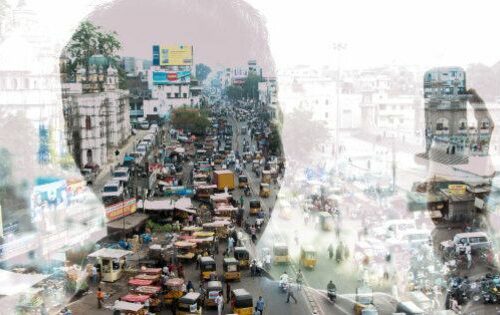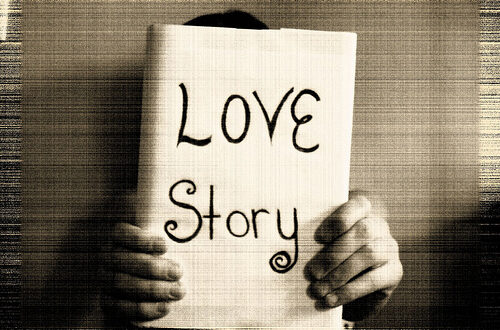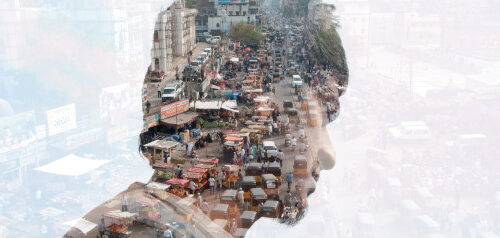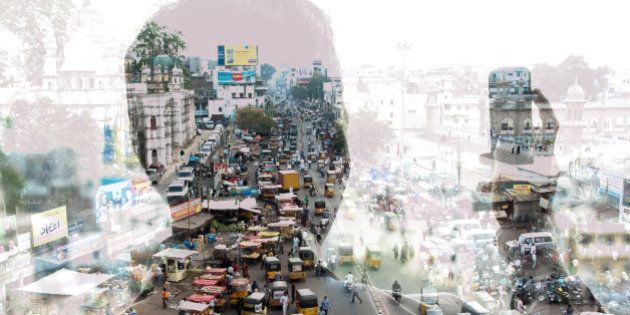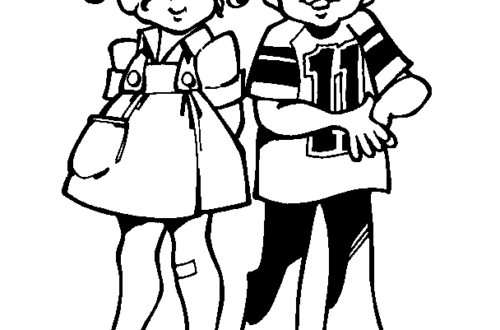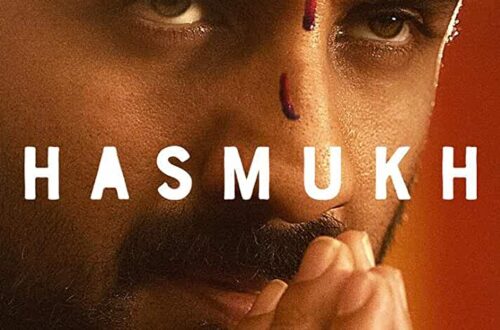COLUMNS
I write Articles- Stories- Digital Content. I actively participate in discussions and debates. That brings comes out to me, a new thought which gives rise to a new idea or an article. I update my website with stories or article published in Print Media like The Huffington Post, Times of India and The Good Men Project. Check out our other Handles.
My works on the website:- Quotes- Poetry- Book Review- Stories - Best Content Creator
YouTube Channel:- Aakash Joshi
Facebook Page:- Ramta Jogi
Instagram Page:- Login • Instagram
-
The virus called “TIME”
This is a Fiction story on Corona Virus and the lockdown scenario.
” The virus called time” short story by Ramta Jogi –
The police patroled in the city saying, “Stay in to stay alive, as the virus could potentially kill you.
Against this announcement, he ran away. He ran, despite the pleas, the requests, and the instructions. Just a few moments ago his flatmates heard him thrashing his TV set on the ground before they could get up to see what had happened, he banged the door and briskly walked out of their apartment. A couple of his flatmates ran behind him, others, concerned and shocked, reluctantly dialed 100 for help. Without a care in the world, the techie ran to the streets to end his frustration caused by the forced isolation. It was 20th May, the 58th day of the nationwide lockdown.
It was in January that year, that people started to talk about the spread of a certain virus, not deadly, but highly contagious. The word was that it spreads faster than the word itself. The media conducted several inconclusive debates about the medium of the spread. Some suggested it was airborne, some said it spreads through touch.
Before the governments realized, people infected with the disease started queueing up at the hospitals. Soon, there were reports of young children and elderly people dying as their immune systems gave up the fight. Unaware of how to deal with the situation, nationwide lockdowns were instated as a measure of containment as desperate times call for desperate measures. It was declared a Pandemic.
Unaware of how grave the situation is, families and work professionals looked at the situation as the thing that was missing in their lives. The family time it was! Delicious meals, time with the kids, online movies, etc. The initial lockdown, which was meant for 3 weeks, came as a “Refresh” button for some. People viewed it as the time to recuperate from their hectic work life. Soon, the forced change to the lifestyle became a little harder to come to terms with. People realized that the love they have for their families is because they don’t stay with them 24*7.
As the days progressed, time moved slowly as many lost tracks of which day it was. TV wasn’t that interesting, online games weren’t challenging enough. Nagging from the kids caused irritation and cooking wasn’t fun anymore. Even making love, became more of a duty rather than passion. News channels and the internet spread more negativity than ever before. Caged inside their rooms away from home, students and bachelors found it hard to survive. What’s the point in punishing everyone because of the stupidity of a few?
Tension mounted on families as the breadwinners panicking about their jobs. Small businessmen were finding it difficult to maintain liquidity sighting negligible demand. Manufacturing set-ups had been shut for weeks. The concept of work-from-home was giving employees more stress than ever before as there was an apparent lack of trust from the employers.
The count of infected people kept growing exponentially, and so did the negativity in the lives of all. People woke up every morning with a hope that this will end soon, and they would be free again, but accepted the reality that it wouldn’t end soon enough.
On the penultimate day of the ongoing lockdown, it was decided that the restrictions would remain imposed for another 30 days. While everyone was subconsciously prepared for this extension, the announcement which followed sent shockwaves. The government wasn’t just grappling to contain the virus spread, they were also struggling to contain the spread of “Fake news” and misinformation. As a precautionary measure, it was decided that a nationwide internet ban would come into effect for the next couple of weeks.
This move was a huge setback for the businesses and citizens in general. It was hard to come to terms with the situation as frustration knew no bounds. News channels became the only source of information, but with the constant fear-mongering, a strong undercurrent of fear could no longer be ignored. The service of all-time and any-time connectivity which social media provided was being missed thoroughly. Especially those who lived away from their families began hallucinating. With nothing to do and no one to talk to, they felt imprisoned.
It had been three weeks since the announcement of the extension. There was an eerie calmness in the environment. Roads were empty, no airplanes in the sky. Bodies and minds were numb. The silence was uncomfortably deafening. This was a test of patience, the reaction to every discussion was an outburst.
Thoughts of going back to the streets were flooding the minds. People weren’t afraid of the virus anymore, after all, how long can an invisible enemy keep you down? The policemen guarding the streets were well-aware of the growing angst. They were thrashing people who took to the streets without any strong reason. The situation is moving towards curfew.
Long unkempt hair, a sense of fatigue and discomfort prevail. Stocks have crashed, economies are staring at an inevitable recession. People aren’t sure of how to get their lives back on track once things normalize. Most have become living corpses.
And on that day, he hurried out, to end his frustrations, to come out of the isolation. No one knew him. Just another bloke out of the 1.3 billion. A police van tried to stop him, but he was in a strange state of mind, probably unaware of what he was doing.
He fell, got up, started running again. The van chased him down and one of the policemen blew a stick to his legs, followed by another one to his head, knocking him down. People heard the screams and came out to their balconies to see what was wrong. By the time his flatmates ran down, he had been seriously injured. Seeing his state, one of them shouted: “Kill us all, before the isolation, kills us!”
The power of raw emotions and anger had found a way out. The policemen could sense the situation getting out of hand as the voices grew stronger and louder. They started hitting those near them to vacate the street. Within minutes, a huge crowd had gathered as people watching the proceedings from their balconies came down in solidarity. More security personnel were summoned to bring the situation under control. It became an ugly scene as mob walked closer to the police sloganeering “Kill us all, before the isolation, kill us!”
The frustration had finally got the better of the patience. The inner numbness had finally ended. The chaos became too much to handle. Ambulances rushed to the area to help those who had been injured. The sheer inner angst was shielding the pain of broken bones and bruised bodies as people shouted at the top of their voices “Kill us all before the isolation kills us!”
Soon a force was called, to disperse the crowd. But who knew that it was just the beginning. The isolation had a far scarier impact on the minds than the virus had on the bodies.
They said, “Stay in to stay alive, as the virus could potentially kill you.”
They were right. The virus did affect many, it was the virus called TIME.
The same evening it was announced that the Prime Minister will be addressing the country the next morning.
For more such content, visit Ramta Jogi
Corona virus – Lockdown – Story
Edited by Akshay Toplay
-
Book Review: The Polyester Prince (Mr.Dhirubhai Ambani)
Book Review -The Polyester Prince by Hamish McDonald – Ambani family by Ramta Jogi
In a legal chamber lined with vellum bound case references, a senior lawyer took an equally stark view. “ Today the fact is that Ambani is bigger than the government,” said the lawyer in all seriousness. “He can make or break Prime ministers. ”
– The Polyester Prince
The Polyester Prince, a book published in 1998 by Hamish McDonald is an unauthorized biographical book on the life of the business tycoon, Mr. Dhirubhai Ambani. The man who re-defined business practices in India ignoring the ethical and moral aspects, leading to a company which today is one of the identities of how Modern India is seen across the globe, Reliance.
Hamish starts the book digging deep into the roots of the man in the center. It goes back to the days of Independence, the partition, Dhirubhai s upbringing, his culture and more on how his upbringing and roots had an impact on what his thoughts came out as he grew.
It highlights how the culture or community of what Ambani is; Modh Bania was perceived and how Dhirubhai was no different from it.
The book takes you to the days in Jamnagar. His relationship building, sustaining and using them at some point in his future. The old friends and acquaintances from Dhirubhai s old days eventually became his pillars of support in making Reliance a success.
The pages explain the rise of a young lad in Aden who decides to start his own business. With that vision, he moves back to India and with support enters the textile industry. Juggling into his trading, learning and unlearning things and screwed thinking, he rose high.
It highlights Dhirubhai s relation with Indira Gandhi, Rajiv Gandhi, Pranav Mukherjee, VP Singh, and even Harshad Mehta. His association with Syndicate bank and many more.
He was with all of them, either in a good way or bad but he was there. As quoted in one of the paragraphs by Dhirubhai, “I don’t know anyone will ever come to know, how much I was involved in bringing Indira Gandhi back” defines his involvement.
All his relations worked for him from time to time in profiting reliance. As Dhirubhai says, “I keep two sandals with me. Gold and Silver and as required, give it to the people. I can salute anyone for my work.” What highlights his business in those days was his shrewd mind of using the Bombay stock exchange for his own good. Not officially, but yes he ran it for his profit.
Policies were made and changed according to his wish, insider information used to reach to him before the announcement. The media was in his control, so where the policymakers. He defined Power. If there was one who can stand against him, there were 10 others to be with him.
Anyone who had the power to influence was with him. Either their children had business tie-ups with reliance or they had some shareholding in reliance owned companies.
The book highlights the making of the Reliance and rise of Dhirubhai Ambani along with the penalties, cases and many issues with its name in the center. Specifically talking about his wars with Nusli Wadia(Bombay Dyeing), The Indian Express and the sufferings he faced when the government went against him. But he rose out of all of that because he had money. And during the ’90s the power was shifting from politics to the one who can buy the power.
By the time things were about to get streamline, it left the entire structure of Government immune to corruption.
Conclusion:-
This can be the best book to understand what not to do in business or what should be done to rise in business. The unethical, malpractices and forgery of the Ambani empire is what highlights in defining Reliance. The author has done immense research and came up with a fine book of data and facts.
This, being my first book of 2020 provided pure entertainment for a reader. With ups and downs, drama and spice, this book shows how the Indian government was being used by someone who was not a part of the government but still ruled it. It could have been a masala entertainer but probably Bollywood might refrain to make it. (Relations matter !!)
I came across dialogue from a Bollywood movie, “Once upon a time in Mumbai.”
“Dawood does not live in Mumbai but still rules it.”
The same goes for this,
“Ambanis are not a part of the government or power. They are the power”
For more such Book Review, visit Ramta Jogi
Book Review -The Polyester Prince by Hamish McDonald – Ambani
Book Review Rating:-*****(4/5)
-
Story: Wine & You
Her long hazel colored nails tinkled, as her wrist softly moved, touching the wine glass. Her fingers made their way towards her fountain pen placed on the bunch of papers, with her eyes still looking on the screen. Rough sheets of papers lay scattered all over the table. The tinkling sound drew her attention away from her laptop towards her glass of wine. With a soft gracious smile on her face, she finally grabbed the glass. Meanwhile, she also picked the pen which was kept open on the last draft of her first poem for editing.
Reading the final draft and sipping the last drop of her wine made her realize that it was the 4th glass she had that evening and now she was not in a stage to have any more. In trying to make herself comfortable and focusing on the poem, she found yet another correction, and this was, as per her understanding, the last one. The comma got replaced by a semicolon. She edited the same on her laptop.
Somehow she was done with the poem. The poem was ready from her end and she wanted some of her close friends to read and review it. But as the night and the heaviness of the content demanded, she opted for the 5th glass of wine again. The solitude of being alone at home was pleasing her. She stood by the window and it was getting cold. The touch of the cold breeze was making her happy. The wine was kinking in. Suddenly the face went low, a few tears dropped and she started watching the stars.
It was not only the wine that made her dull. It was Punit, in whose memories she was so absorbed that the tears came out. He came in her life as happiness to her existence. Her soul was at peace with her breaths, because of him. He made her look beautiful in her own eyes. He became her definition of love. But time and circumstances define the person you are and in no time, he left.
What went wrong or whose fault it was, were the questions that can be ignored when the end is not one she dreams off. He left, leaving her in search of the solitude she never wanted but is now all that she wants. She took to drinking. The girl whose love was defined by someone’s existence started living her life. Wine became a part of her. She had never drunk before Punit. Not even with her earlier boyfriends.
Slowly with wine came a time of self-realization. This leads to defining her in the smallest world of words. She started reading and playing with words.
Reliving the time with him, she tried to write. Pages after pages got lost in some corners of the room, making her realize how easy it was to live that life and how difficult it was getting to portray it on paper. Days passed and each rolled paper thrown in dustbin gave her a better meaning about herself.
Today, after filling the room with many such paper balls, she was finally with the draft of her first poem. The stars were now blinking at her, shinning and making her realize how beautiful she looks even without anyone praising her in the room. The darkness of night was no longer a sign of loneliness for her. It was peace and tranquility now. The process of writing about her life made her a better woman. She understood those aspects of life, which she never felt while living them. Words made her a better person. They made her love herself. Now, the 5th glass was supped. She smiled at the moon and thanked the stars for showing faith in her. She moved back to her laptop and titled her poem, “Wine and You” and sent it to her friends.
That night she was in love with her existence even more, in relation to no one else. Moving back towards the bed, she slept with utmost peace. The poem got appreciated published in International magazine and loved by all. Somehow, what the words in “Wine and you” did for her, was what the wine and the guy in her life were not able to do.
-
The myth of a virgin Indian| Life blog
The myth of a virgin Indian | Life blog
We belong to an era where everything happens today, and tomorrow it turns out that nothing had happened yesterday. An era where rules, regulations, laws, ethics exist only in the daylight, in the frame which is seen by others. What happens in the dark, in isolation, is a falsifiable truth, a myth, which can be ignored or refuted. We are how we are seen, not how we actually are. The “real me” is of least relevance to us. The truth does not affect us, as long as it is not known to others around us. We move on and move out from our past or the darkness way too fast.
Having embedded ourselves tightly into the visibility of life, we have diminished the “thinking” component of our existence. We have accepted a life which is seen by others rather than the one which is lived by us. We have made our minds so strong that we can even differentiate between those two parts. And to make things worse we can even justify how both are right and that too at the same point of time. Any wrong action or decision is accepted and then framed to explain how they were right for us with respect to society. We convince ourselves and make ourselves believe that we are good and innocent and we have done no wrong. Hence, in the bright light of day, in the eyes of society, we become what we are seen as —
The Virgin Indian.
The rapes that are covered by the media become a shame for the nation, but the ones that take place in isolation, in remote corners, go unnoticed, unregistered and hence are said to have not happened.
The domestic violence that takes place inside the houses stays there. No one takes any notice of it. There may be marks, but there is no proof. The acts of forced sex in marriage take place once the lights go off, and once the lights are switched on, it is seen as a happy marriage again.
The acts of corruption are always termed as taking place “under the table” and so above the table, everything is clean and clear. A thief when caught justifies himself, stating “I have not done anything and I am innocent.”
These examples are among many that show that anything which is either not seen by the public or not accepted becomes something that has not even taken place. There is violence, harshness under the cover of night but in the daylight, distant from the past, it’s as if nothing happened. We are seen as pure, pious Virgin Indians.
…
We have distanced ourselves from the regret of our own actions and so we have adapted to the blame game theory created by mankind. Here for each and every act which is unfair, is a heinous crime, the blame always shifts to the other person. It’s always someone else who is responsible for a misdeed or crime. We, on the other hand, are clean of any stain. In the circle of blame, life continues and in the end, no one is the source of any wrongdoing; therefore, everyone ends doing nothing.
We see being in a denial as a part of our lives and thus we see ourselves as virgins and have closed our eyes to the truth, to our own actions and our own guilt. Somehow, we have convinced ourselves that we are in a deep sleep, unknowing and unaware of what we are doing and the consequences that our actions can lead to. What we forget is that even as we sleep, we are awake in our dreams.
We need to ask ourselves, should the brightness or darkness change us from being what we are? Are we virgins in the true sense or have we just got up and put on our clothes and are thinking that nothing happened last night? But clothes are what appear to outsiders; we still feel our own nakedness.
….
The problem with us is that we have blindfolded ourselves to our thoughts. The question is never what right or what wrong did we do. The question is acceptance. However right or wrong we prove to society or the outer world, we can never lie to ourselves, even in the darkness of the night and brightness of the lights. In front of the mirror, and more so, within our own heart we know that we have lost our virginity a long ago.
We have lost it along with our conscience, in terms of doing certain things as part of the fun, accepting something wrong just because it never mattered too much to us, being a part of something immoral which benefited us and many more such reasons. Deep inside we know how many times we have laid down our ethics, morals, and truth in general and how many times we have believed in our own disbelief.
We are no longer virgins; what we are now is just an answer to our own regrets. To soothe, to pacify and to keep ourselves free of the pain and torture of penitence we keep on reminding ourselves that we are virgins, unsullied. But in the shelter of dark, the actions did take place. Closing our eyes will neither change the truth, nor the consequence.
In the end, we remain the scattered particles of our own guilt, our own conscience. There we are, gathering up the pieces, trying to put them together and hoping that in the broad daylight we can portray ourselves as being the Virgin Indian.
Previously Published in The Huffington Post @ https://www.huffingtonpost.in/aakash-joshi/the-virgin-indian_b_8441370.html
The myth of a virgin Indian | Life blog
*********************************
Connect to us @
-
Blog-The generation missing the closure-ramtajogi.co.in
The generation missing the closure
The path always beautifies the journey but it’s the destination that justifies it. We are a generation in a hurry!! This rush, knowingly or unknowingly, is making us a Fad generation. Whether it is a trend, technology, objects, or even emotions, everything withers away in no time.
We use things, boast about them, enjoy them and suddenly when a better option pops out, we replace them. The ones that are lost get stored in the spam folder of our brain, which is rarely opened again in the future.
We don’t like the repetition of things that has lost the touch or feel and more importantly that has been replaced by something. Also, we don’t regret them.
We have been habituated to going with the flow and letting go of things abruptly when they become redundant.
We belong to the era of logging out rather than deactivating things.
Like in an application where we delete the app from our cell phone, rather than deactivating it from the source. We do this even when we very well understand that we don’t really need it and nor will we be requiring it in future. A similar scenario goes on with objects, people and emotions as well.
At times, when relations don’t work out when emotional understanding fails to match and compatibility withers away, we tend to stop there and run away. Instead of suffocating in it we eventually move on. We declare it as our past.
We block it from our lives and start ignoring it from time to time; stop talking about it, discuss it and move into the new vibes and new people in the same old world.
Eventually, we start making ourselves comfortable with them and believe that the past no longer belongs to us. Somewhere, we create an artificial bubble around us, just to show the surroundings and convince ourselves that we are in a different zone altogether.
But whom are we fooling?
Still, somehow our profile pictures keep on changing in relation to our old memories; our passwords still have dates of our first anniversaries. Stalking the profiles of the ones who no longer belong to us, just to be updated with what is going on with them and many such things keep us subconsciously with them. When another moment of love comes with someone else, we doubt, and we tend to behave a bit awkwardly.
We feel a bit weird, and a comparison to the past erupts. This is because, inside us, we know that something is incomplete. In the presence of society, online and offline we act as if we have agreed to the past and have made an understanding with it. But deep down we know that the closure is still left. We have not agreed with ourselves that the past is gone. We have not witnessed it in our present and accepted it.
Instead,
We just ran away from it and have kept things in us still moving and hoping that the future is unknown to us and so it is better to leave the confused past unchanged in the present so that we can twist the future accordingly as and when needed.
We have kept things open to avoid the pain and still are trying to move on. This way, we have just avoided Closure.
What we undermine is the very acceptance of the thought that we are not what we are as long as our present is entangled with the fluctuations of the past. Our past has ceased. It has ended. It cannot fluctuate or move at random in our present. This is unsatisfying. Justifying a present that has the shades of the past still lingering on it in an abrupt manner is not a justified present. Good or bad whatever that past was is not even something to ponder upon.
It makes us look weak and is an unhealthy condition.
It makes us numb and guilty at times. We cannot cross the river to create new memories on the other side by staying on the same side of the bridge. The closure is what this generation fails to understand.
By failing to understand this, we end up having depression, trust issues, irrational behaviour and dubious states of mind where we cannot even accept the present wholeheartedly and nor can even let go of the past in a positive manner. The conscious or subconscious clinging to the past will not justify or define our moving on.
Whatever status you post or philosophies you preach are meaningless until you accept the past and close it. We need to look back to that past; that person, that feeling or that emotion, with whom things will not be the same now and accept it. We have to face the one that is gone. Adapt to the existing and accept the one that is left behind.
We need to accept it as a concrete part of our present. Running away from it by ignoring it is fear and not a solution to it. Life demands a closure; a closure from whatever happened. Moving on without accepting is never closure. We need to embrace the past with understanding and satisfaction. The future will look beautiful only when it has a past that it still remembers with acceptance.
Published in The Good Men Project: https://goodmenproject.com/guy-talk/the-generation-missing-the-closure-cmtt/
For poetries, visit Ramta Jogi Poetry
The Generation missing closure



